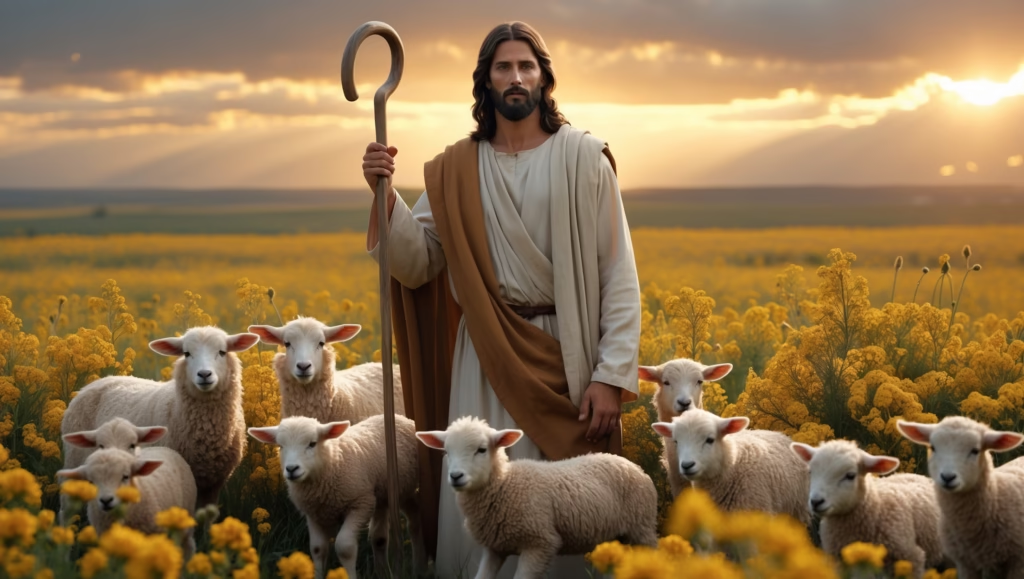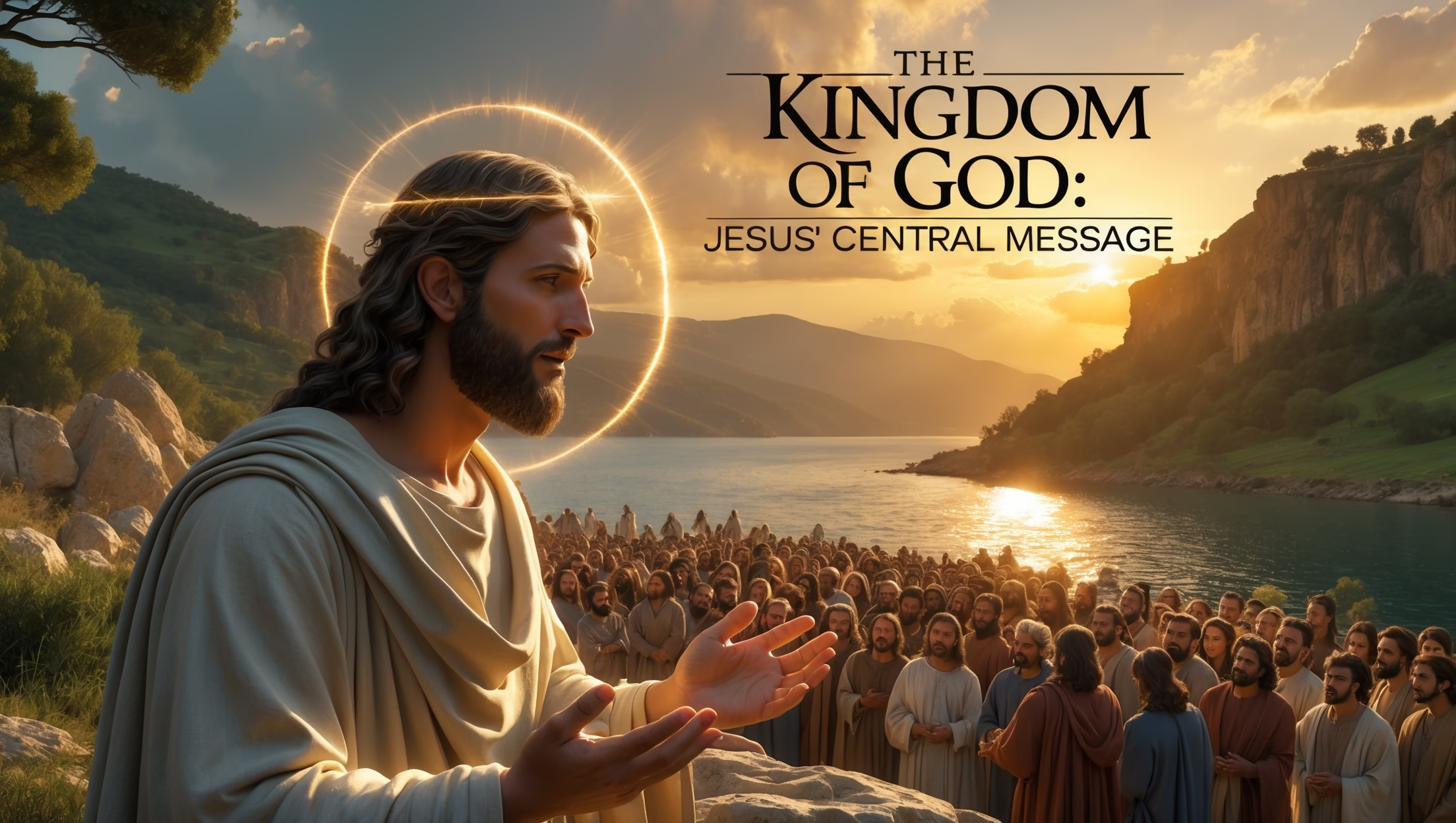Not of This World, Yet Transforming This World
When Jesus began His public ministry, His first recorded proclamation was not about morality, politics, or self-improvement—it was about the Kingdom of God. “The time is fulfilled, and the kingdom of God is at hand; repent and believe in the gospel” (Mark 1:15).
Over 100 times in the Gospels, Jesus spoke of the Kingdom. Yet for many, the term remains vague or misunderstood—confused with heaven, the church, or social activism. In reality, the Kingdom of God is the thread that ties together His teaching, miracles, parables, and mission.

The “Already/Not Yet” Reality
One of the great mysteries of the Kingdom is its timing. The New Testament presents a two-stage reality:
- Already Present — Jesus declared that the Kingdom was “in your midst” (Luke 17:21), embodied in His presence, works, and the Spirit’s activity. His miracles, exorcisms, and forgiveness of sins were tangible signs that God’s reign had broken into history.
- Not Yet Complete — At the same time, He taught His disciples to pray, “Your kingdom come” (Matthew 6:10), anticipating its full, visible arrival when He returns in glory (Matthew 25:31–34).
The Tension: This means Christians live in the overlap of two ages—the present evil age and the dawning new creation. We taste the Kingdom’s power now but await its consummation.
Inaugurated at Christ’s First Coming, Consummated at His Return
Theologians describe the Kingdom as inaugurated in Jesus’ first coming—like D-Day in World War II, when the decisive battle was won, yet the final victory (V-E Day) was still to come.
- Inauguration: Jesus’ life, death, and resurrection broke sin’s dominion and inaugurated God’s reign in human hearts.
- Consummation: When Christ returns, every enemy will be defeated, death destroyed, and God’s will perfectly done on earth as in heaven.
The Paradoxical Nature of the Kingdom
Jesus often described the Kingdom with paradoxes—realities that seem contradictory but reveal profound truth.
Hidden Yet Powerful
- Yeast in the Dough (Matthew 13:33) — The Kingdom may begin unnoticed, but it works silently and thoroughly until it transforms everything.
- Mustard Seed (Mark 4:30–32) — The smallest of seeds grows into a large tree, illustrating how the Kingdom’s seemingly small beginnings lead to vast, unexpected impact.
Present Yet Future
The Kingdom is not merely a distant dream but a present reality advancing in the world, even if it is often invisible to human eyes.
The Kingdom’s Radical Values
The Kingdom of God inverts the values of the world.
- Blessed are the poor in spirit (Matthew 5:3) — True citizenship in the Kingdom begins with humility and dependence on God, not self-sufficiency.
- Greatness through service (Mark 10:42–45) — In God’s reign, status comes not through power but through sacrificial service, modeled supremely in Christ who “came not to be served but to serve, and to give His life as a ransom for many.”
The Kingdom is not an abstract idea—it’s a lived reality that shapes ethics, relationships, and priorities.
The Ethical Implications of Kingdom Living
Prayer: “Your Kingdom Come” (Matthew 6:10)
Praying for the Kingdom is more than asking for heaven; it’s inviting God to extend His rule into every corner of our lives, communities, and nations. It’s aligning our desires with His purposes.
Mission: Advancing the Kingdom (Acts 1:8)
Before ascending, Jesus entrusted His disciples with the mission of bearing witness “to the ends of the earth.” The gospel is the Kingdom’s proclamation—announcing the reign of God and calling people to repentance and faith.
Modern Relevance: A Challenge to Two Extremes
The Kingdom of God continues to confront every generation.
- Against Secular Materialism — It declares that life is not defined by possessions, power, or pleasure, but by submission to God’s reign.
- Against Religious Legalism — It shows that God’s Kingdom is not earned by rule-keeping but entered by grace through faith in the King.
In an age of political polarization, the Kingdom refuses to be reduced to any earthly agenda. It is “not of this world” (John 18:36) yet transforms this world through truth, love, and justice.
The King and His Kingdom
The Kingdom of God is inseparable from the King Himself. It is not merely a set of moral principles or a utopian society—it is the active, sovereign rule of Jesus Christ.
- Wherever Christ is acknowledged as Lord, the Kingdom is present.
- Wherever His authority is resisted, the Kingdom is yet to come.
This means the call of the gospel is not only to be forgiven but to be ruled—to submit every area of life to the rightful King.
Living as Citizens of the Kingdom
To live as Kingdom citizens is to embody its values in the here and now while longing for its fullness. This means:
- Seeking justice and mercy in our relationships and communities.
- Loving enemies and forgiving freely.
- Investing in eternal treasures rather than clinging to temporal ones.
- Serving others with humility.
- Bearing witness to the King through word and deed.
Conclusion: A Kingdom That Cannot Be Shaken
Hebrews 12:28 reminds believers that we are receiving “a kingdom that cannot be shaken.” All earthly powers will fade, but the reign of Christ will endure forever.
Jesus’ central message was never about mere self-help or abstract theology—it was a summons into a new reality. The Kingdom is here; the Kingdom is coming. It is hidden yet unstoppable, humble yet glorious, present yet future.
And the invitation still stands: Repent and believe the good news.








